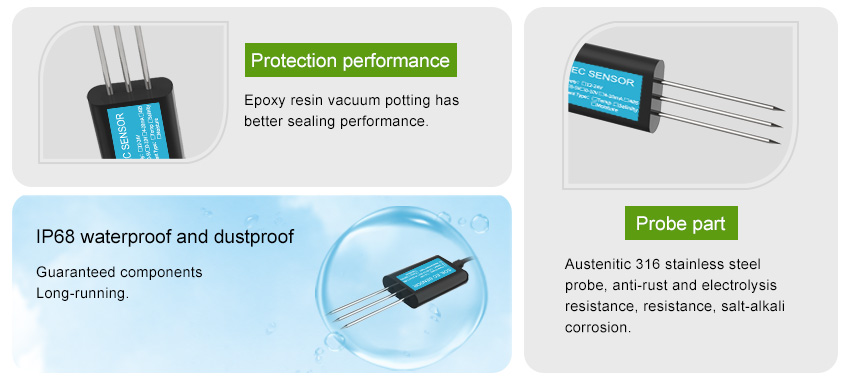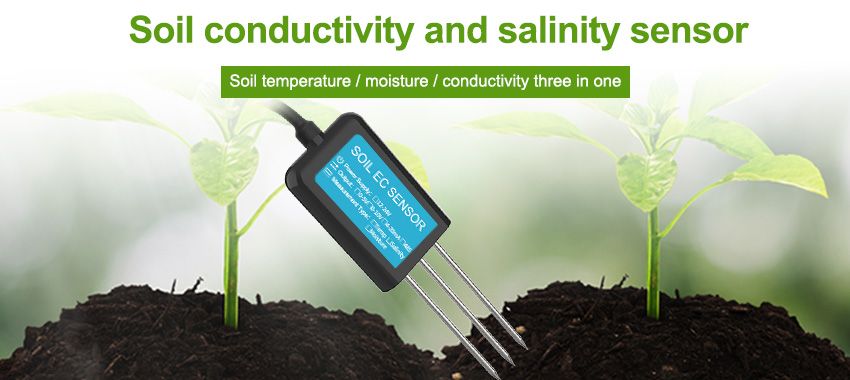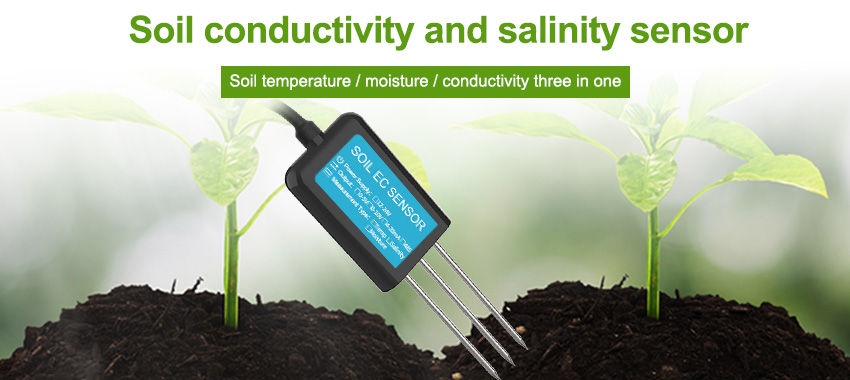Agriculture is undergoing a technological revolution, with innovations such as soil sensors playing a crucial role in transforming traditional farming practices. These small and powerful devices are reshaping the way farmers understand and manage their soil, leading to increased productivity, efficient resource utilization, and sustainable agricultural practices. In this article, we will delve into the power of soil sensors and explore how they are revolutionizing agriculture.

Understanding Soil Health:
Soil health is the foundation of productive agriculture, and soil sensors play a pivotal role in assessing and monitoring its condition. These sensors measure various parameters, including moisture content, temperature, pH levels, and nutrient availability. By continuously collecting data, soil sensors provide farmers with real-time insights into the health and quality of their soil. This knowledge allows them to make informed decisions regarding irrigation, fertilization, and soil management practices.
Precision Farming:
One of the significant benefits of soil sensors is their ability to enable precision farming techniques. Instead of applying fertilizers uniformly across entire fields, farmers can use soil sensors to identify specific areas that require precise nutrient supplementation. By applying fertilizers only where needed, farmers can optimize resource utilization, reduce nutrient runoff, and minimize environmental impact. Precision farming enhances crop yield while promoting sustainable agricultural practices.
Efficient Irrigation Management:
Water scarcity is a significant challenge in agriculture, making efficient irrigation management critical. Soil sensors provide accurate information about soil moisture levels, enabling farmers to optimize their irrigation practices. By measuring soil moisture content at different depths, these sensors help determine optimal watering schedules and irrigation amounts tailored to the specific needs of crops. This precision ensures that plants receive adequate water while minimizing water wastage.
Early Pest and Disease Detection:
Soil sensors can also aid in early pest and disease detection. Changes in soil conditions, such as nutrient imbalances or water stress, can indicate the presence of pests or diseases. By continuously monitoring soil parameters, farmers can identify and address issues promptly, preventing the spread of pests or diseases and minimizing crop losses. Early detection allows for targeted interventions, reducing the need for broad-spectrum chemical treatments.
Data-Driven Decision Making:
The data collected by soil sensors empowers farmers to make data-driven decisions. By analyzing historical and real-time data, farmers can identify trends, correlations, and patterns in their soil conditions. This knowledge helps optimize farming practices, improves crop management, minimizes input costs, and maximizes yields. Data-driven decision-making also enables long-term planning, allowing farmers to make informed choices regarding crop rotation, cover cropping, and soil remediation strategies.
Sustainable Soil Management:
Soil sensors contribute to sustainable soil management practices. By continuously monitoring key soil parameters, farmers can assess the impact of their agricultural practices on soil health. This information helps implement measures to prevent soil degradation, erosion, and nutrient depletion. With soil sensors, farmers can adopt regenerative farming techniques such as cover cropping, conservation tillage, and organic amendments, ensuring the long-term fertility and productivity of their land.

Remote Monitoring and Automation:
Advancements in technology have made it possible to remotely monitor soil sensor data. Farmers can access real-time information about their soil conditions through mobile applications or online platforms. This remote monitoring capability allows farmers to make timely decisions even when they are not physically present on the farm. Additionally, some soil sensors are equipped with automation features, enabling farmers to control irrigation systems or nutrient application based on preset thresholds, further streamlining farming operations.
Economic and Environmental Benefits:
The adoption of soil sensors offers economic and environmental benefits. By optimizing resource utilization, farmers can reduce input costs associated with fertilizers, water, and energy. Precision farming practices driven by soil sensors also minimize environmental impacts, such as nutrient leaching or chemical runoff into water bodies. Sustainable soil management improves soil structure, water-holding capacity, and nutrient cycling, leading to resilient and productive farming systems.
Conclusion:
Soil sensors have unleashed a new era of possibilities in agriculture. Their ability to provide real-time data, enable precision farming, and support sustainable soil management practices has revolutionized traditional farming methods. By







